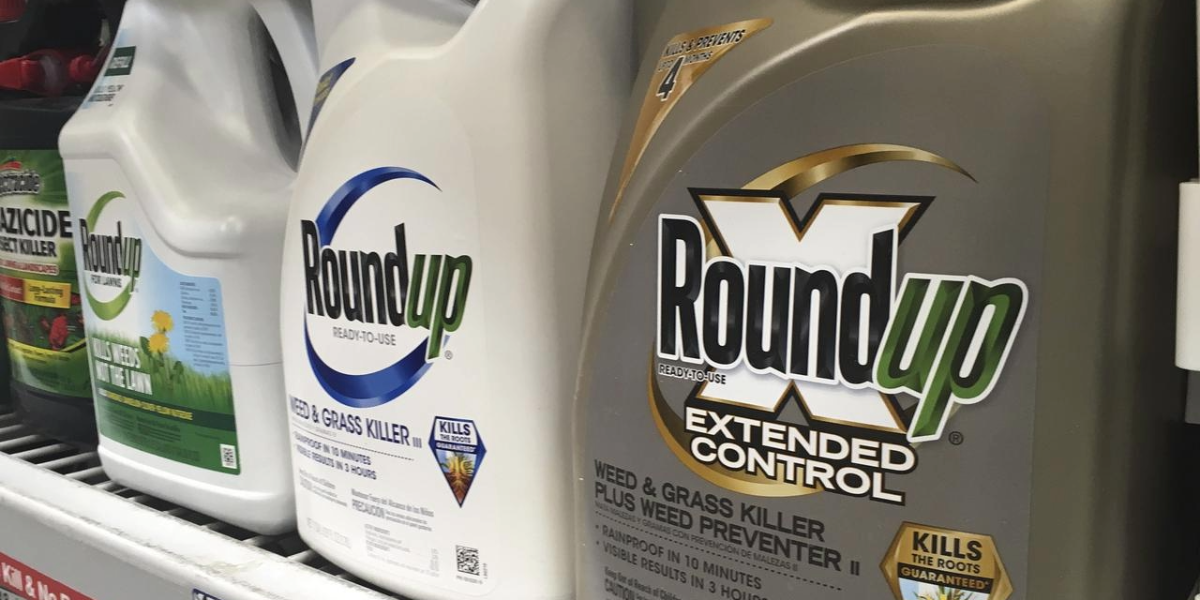There is not enough evidence to prove an ingredient used in a popular weed killer causes cancer, a Federal Court judge has found.
Justice Michael Lee handed down his judgment in the class action against widely-used herbicide Roundup on Thursday afternoon.
The case, launched by Maurice Blackburn Lawyers, claims Roundup’s active ingredient glyphosate caused the cancer of more than 800 Australian non-Hodgkin lymphoma patients.
Justice Lee ruled there is not enough current evidence to say glyphosate is carcinogenic and capable of causing non-Hodgkin lymphoma in humans.
Decision based on scientific knowledge at the time
The judge only needed to consider the question of general causation – not the specific claims of lead applicant Kelvin McNickle or the other class action group members.
Justice Lee said he made his findings after only assessing the scientific evidence brought forward by the parties.
“(It) can only represent a snapshot of the state of scientific knowledge at the time,” Justice Lee said.
The science was “not all one way” and some of the expert witnesses conceded there were possible links between glyphosate and cancer in humans, the judge said.
“One cannot foreclose the possibility that further research may reveal a compelling link,”Justice Lee said.
But the judge ultimately ruled on the state of the current evidence, and on the balance of probabilities, he could not determine there was a causal link between Roundup and cancer.
Justice Lee, the same Federal Court judge who found Bruce Lehrmann did rape Brittney Higgins (on the balance of probabilities) in Lehrmann’s failed defamation case, ordered the class action proceedings be dismissed but reserved his decision on costs.
Bayer, which acquired Roundup’s producer Monsanto in 2018,has previously stated glyphosate-based herbicides have been rigorously tested in hundreds of studies and it is safe when used as directed.
The company’s CropScience managing director Warren Inwood said Thursday’s ruling was a win for Australian farmers who rely on critical farming tools like Roundup.
“These products underpin sustainable farming systems and support farmers in doing what they do best – putting food on the tables of Australians every day,” he told reporters outside court.
Maurice Blackburn lawyer Lee Taylor said class action members were disappointed but the law firm would review the judge’s decision.
Farmers, industry, welcome decision
NSW Farmers Ag Science Committee Chair Alan Brown welcomed the decision and said glyphosate had been rigorously tested by the scientific community, with the Court’s decision consistent with international regulatory assessments such as that of the Australian Pesticides and Veterinary Medicines Authority (APVMA).
“The use of glyphosate in accordance with the instructions on chemical labels has been scientifically proven to be safe, and it has not been found to cause cancer,” Mr Brown said.
“More than 800 scientific studies and reviews, including numerous independent regulatory safety assessments, are in support of this fact, and Australian farmers are well aware of how to use this chemical correctly to protect the health of their families and communities.”
As a key ingredient in over 500 chemical products including popular weed killer Roundup, Mr Brown said the continued use of glyphosate was critical to the agricultural industry’s ability to sustainably produce food.
“Glyphosate was almost as big a game changer for farmers as the invention of the wheel was to man – it is such a critical component of modern and sustainable agricultural production,” Mr Brown said.
CropLife Australia, the peak body for agricultural chemical companies, said the decision of the Federal Court of Australia which is in line with every scientific regulatory authority on the planet – that glyphosate is safe to use in accordance with the label and is not carcinogenic.
“Today’s verdict reflects what science and independent expert assessment has confirmed for decades,” said Chief Executive Officer of CropLife Australia Matthew Cossey.
“This is a welcome outcome and confirms the appropriateness of the independent science-based regulatory system overseen by the Australian Pesticides and Veterinary Medicines Authority.”
APVMA vindicated
The Armidale based APVMA has been criticised on its regulation of glyphosate following court decisions in the US, which were triggered by an International Agency for Research on Cancer (IARC) paper which classified glyphosate as “probably carcinogenic to humans”, in the same category as eating red meat and drinking beverages hotter than 65C.
The IARC’s classification also noted there was “strong” evidence that glyphosate was genotoxic – able to damage the genetic information within cells, which can lead to mutations that result in cancer.
The APVMA evaluated the International Agency for Research on Cancer (IARC) position on the chemical in 2016. They considered the IARC report and other up-to-date scientific publications to decide whether a formal reconsideration of glyphosate was required, and concluded that glyphosate does not pose a carcinogenic risk to humans.
Since then, the APVMA continue to amass the global literature on the subject. In the last 12 months alone, the APVMA have assessed 600 newly published studies on glyphosate, with no change to its position. These latest studies now constitute the most recent addition to the 5,300 peer-reviewed articles and datasets assessed as part of its ongoing support for continued registration. Any one of these studies could have either triggered a full review, or a cancellation of the chemical if there were any plausible risk to farmers, consumers, or the environment.
The decision of the APVMA is consistent with that of its global peers, including The U.S. Environmental Protection Agency (EPA), the EU’s Assessment Group on Glyphosate (AGG), the European Chemicals Agency (ECHA) and the leading health authorities in Germany, Australia, Korea, Canada, New Zealand, Japan.
Something going on in your part of the New England people should know about? Let us know by emailing newsdesk@netimes.com.au


